How To Propagate And Care These Indoor Green Plants?– Green Plants Tips For A better Home Decor
These days, no one has a basin of flowers and plants. However, do you know how to raise indoor plants?
In fact, the selection of indoor plants is bidirectional. On the one hand, it is more appropriate to choose what kind of plants for the indoor; on the other hand, what kind of indoor environment should be suitable for the plants to grow.
1. Pay attention to all kinds of properties of plants, such as shade, Xi Yang, drought resistance, cold resistance and so on, and place them selectively.
Plants like Heaven Bird, Banyan Banyan, rubber tree, Jade Tree, cactus and so on are suitable to be placed indoors for over 4-6 hours of illumination; money Tree, Green rose and so on are suitable to be placed in the bathroom where there is almost no direct sunlight. Many kinds of indoor plants belong to tropical plants, and they can only grow well in warm and humid places, such as birds of heaven, Banyan Banyan, rubber trees, tortoise bamboos and so on. These plants need to provide moist maintenance environment, pay attention to antifreezing in winter. However, if the maintenance environment is very dry or you are too lazy to water it, then meat plants such as cactus and pearls are very suitable.
2. If the indoor space is too small, do not choose plants with luxuriant branches, such as rich trees, tortoise bamboos and so on; and do not choose plants that can be very tall, such as Banyan Banyan, rubber trees and so on.
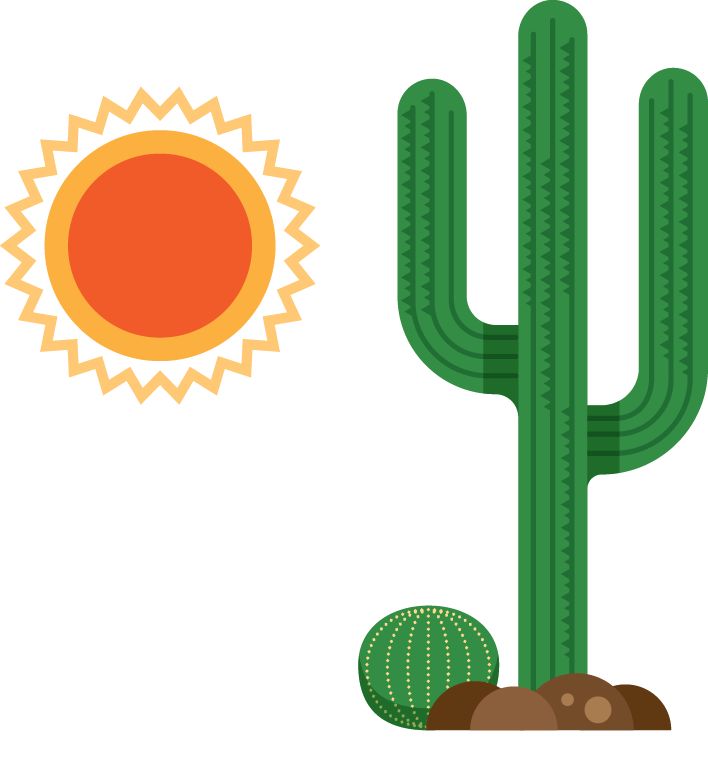
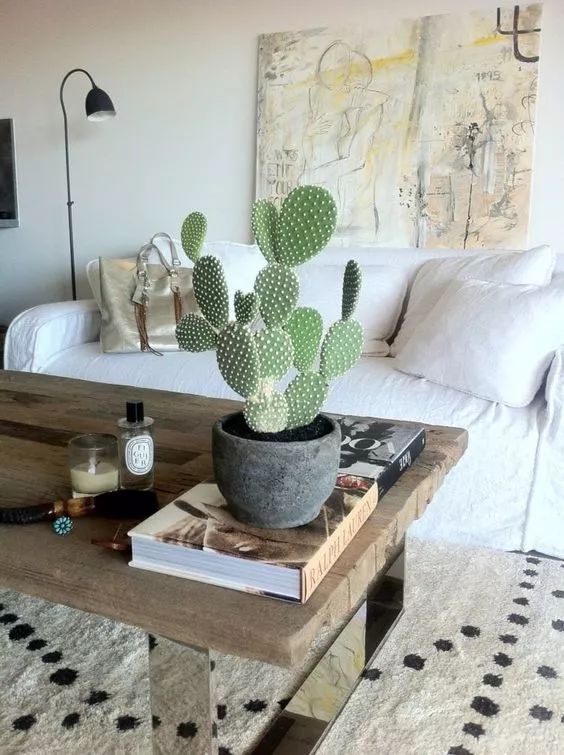
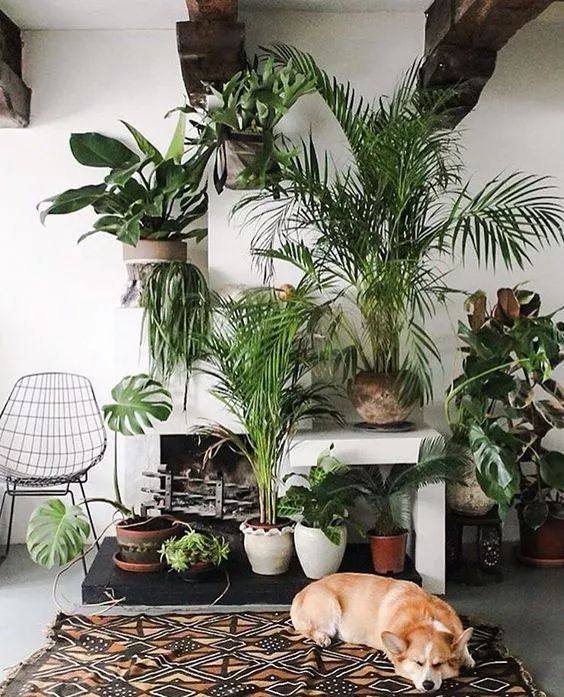
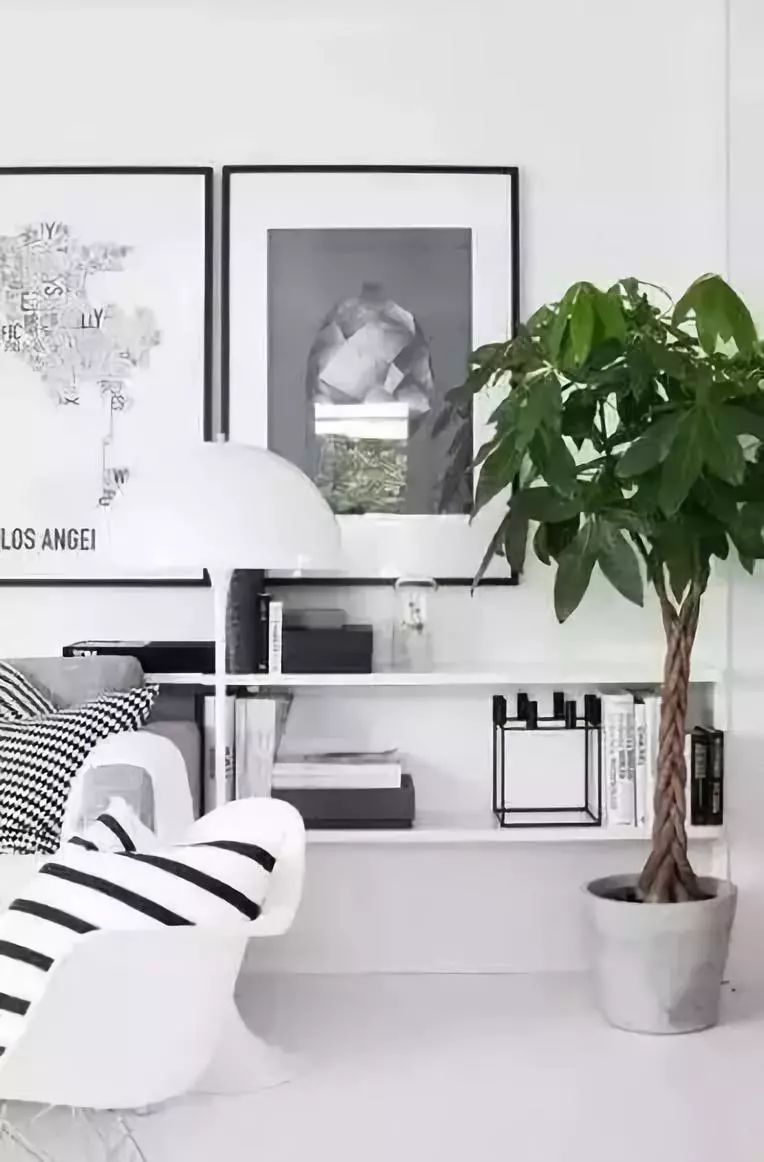
3. After the plants are placed at home, try not to change their positions frequently.
For example, Banyan is a kind of plant that is very sensitive to temperature. In months with relatively low temperature, the sudden drop of temperature will be bad for growth. Similarly, rubber trees and tortoise bamboos are also sensitive to temperature and moisture. Once they find a good place for them, try not to move.
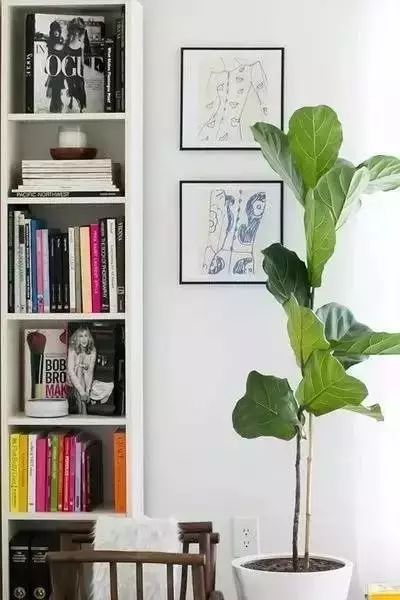
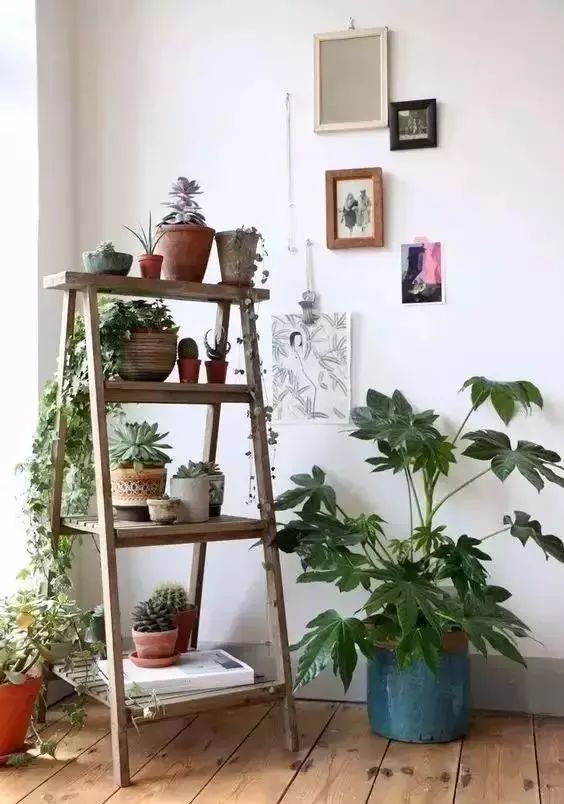
4. if you have children or pets at home, do not choose thorny plants, such as roses, Jin Hu, cactus and so on; and do not choose toxic plants, for example, the juice of dripping Avalokitesvara, tortoise, Dioscorea scutellariae, and Pearl stilmanthus contain toxic chemical substances.
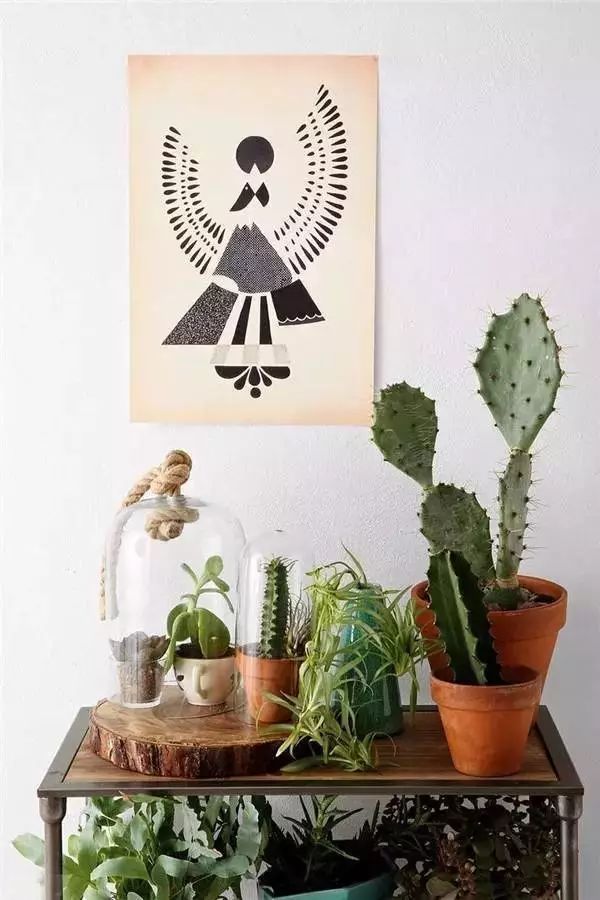
5. Plants that give off strong fragrance should not be placed in the bedroom.
The fragrance of plants is used to attract insects to spread powder, so some biological substances will be mixed in the fragrance, which will make the population dry, anxious, dizzy, breathing difficult, etc. Such as tulips, roses, lilies, and night lilies.
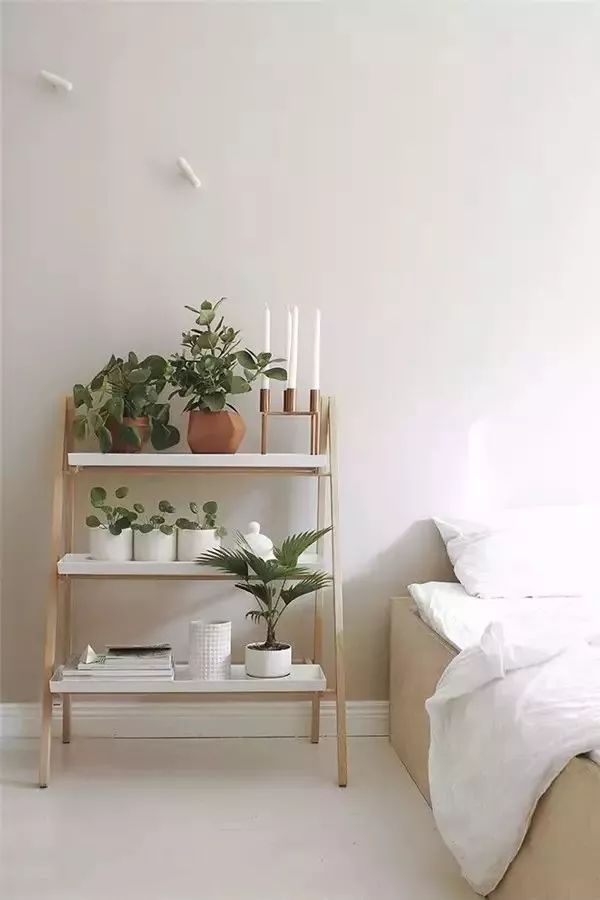
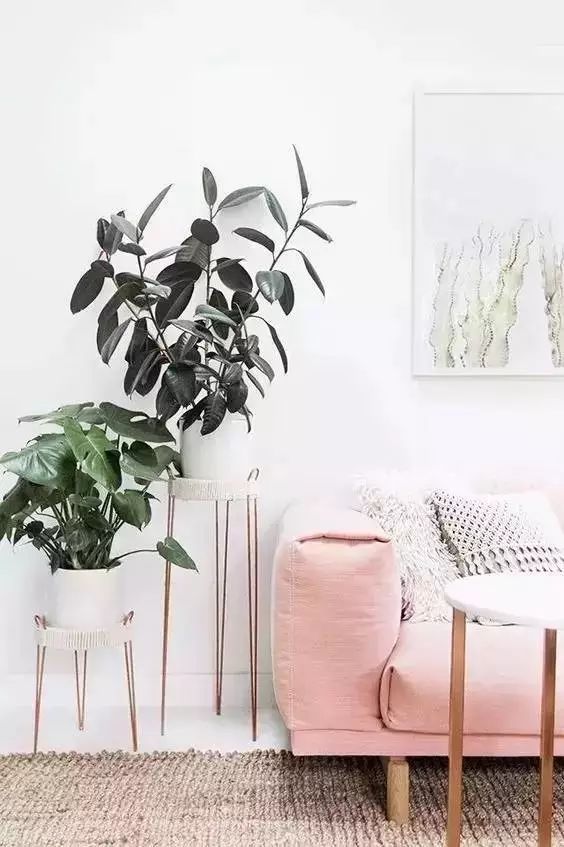
6. Plants are not always purifying the air.
Most plants absorb carbon dioxide and release oxygen through photosynthesis in the daytime. But in the evening, because photosynthesis can not be carried out, plants become to absorb oxygen and spit out carbon dioxide, forming a situation of “fighting for oxygen” with people.
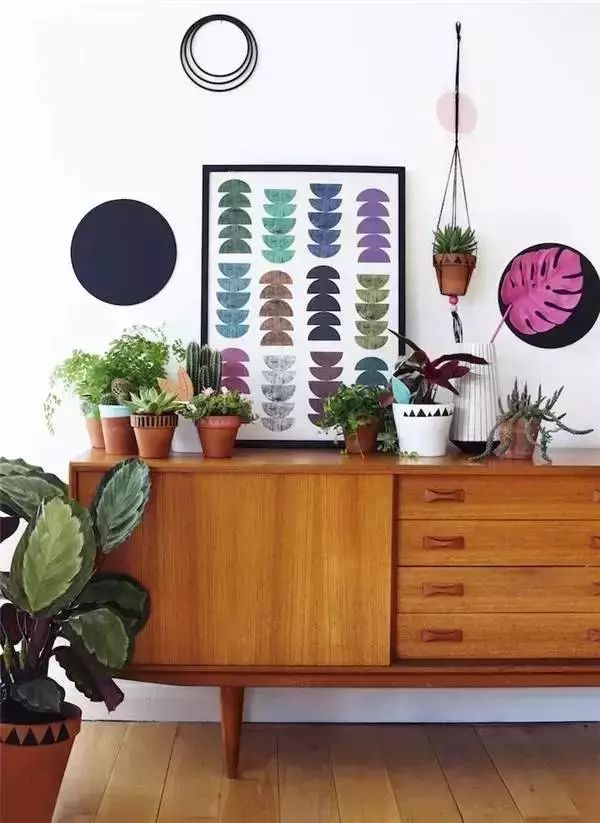
7. Pay attention to whether family members have symptoms of allergy to pollen, and carefully choose plants with excessive pollen. Such as Lily, Rose, etc.
The following figure shows more specifically how different the demands of different kinds of plants for light and water are.
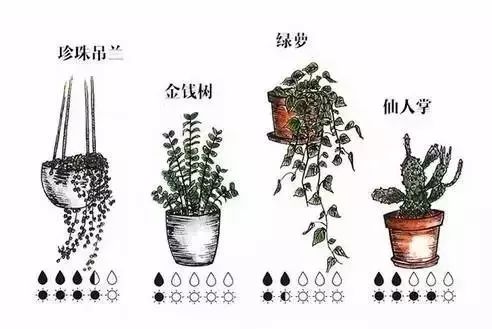
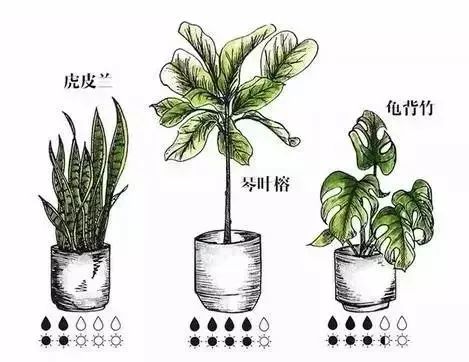

1. Indoor plant conservation light
All plants need sunlight for photosynthesis, but different kinds of plants need different lighting conditions. Most tropical plants need enough direct sunshine to grow well, while some plants only need to scatter the sunshine. Some plants that like the shade don’t need too much sunshine. The sunlight is too strong, but they don’t grow well. However, it doesn’t mean that they don’t need sunshine. Sometimes they still need to take it out to bask in order to increase their photosynthesis.
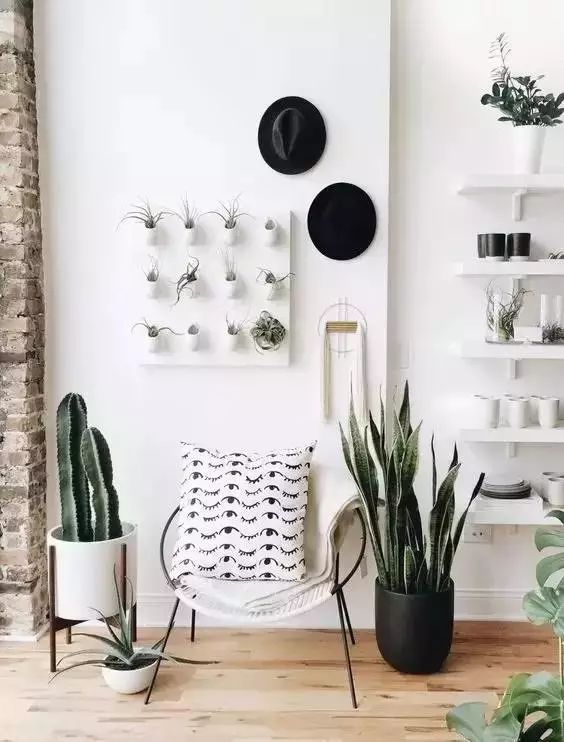
2. The temperature of indoor plant conservation
Each plant has its most suitable temperature. Generally speaking, the suitable temperature for growth is 15-34 ℃, the ideal temperature for growth is 22-28 ℃, the daytime temperature is about 29.4 ℃, and the night temperature is about 15.5 ℃, which is the most suitable for most plants. Indoor temperature in summer should not exceed 34℃, and it should not be lower than 6℃ in winter. Except for the delicate orchid, if you want to let the orchid blossom, the three factors of water, sunshine and temperature are very important.
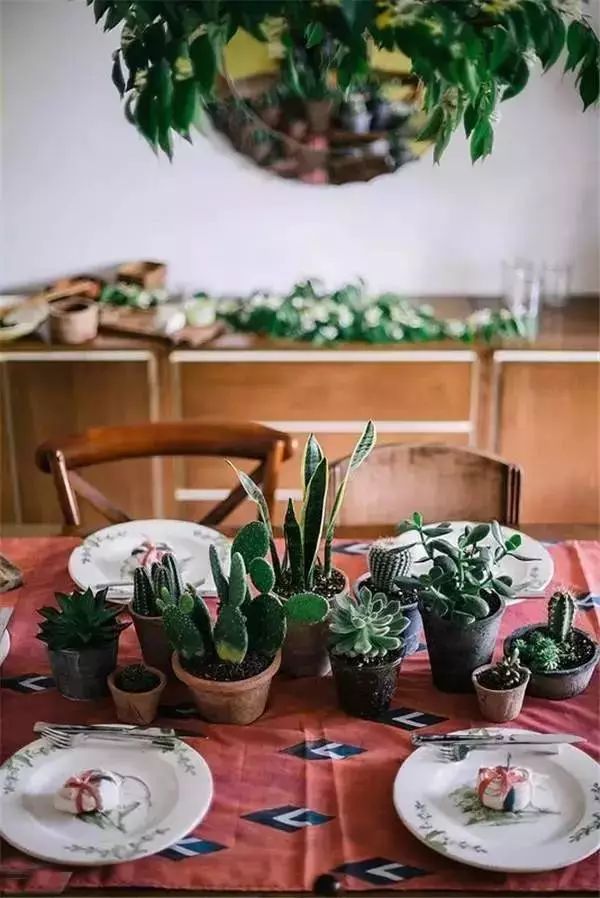
3. Water for indoor plant conservation
Plants have different demands for water in different seasons, and the natural evaporation amount of water in the soil is also different. Therefore, watering plants requires skills and long-term experience accumulation. For beginners, you can master the principle of “see dry and see wet, do not dry and do not pour, then water thoroughly”, which means watering only when the surface of the basin soil is white, until there is water seeping in the drainage hole at the bottom of the basin. However, for some plants which are fond of drying, such as cactus, they can’t be watered frequently, because if there is too much water, the roots will rot easily.
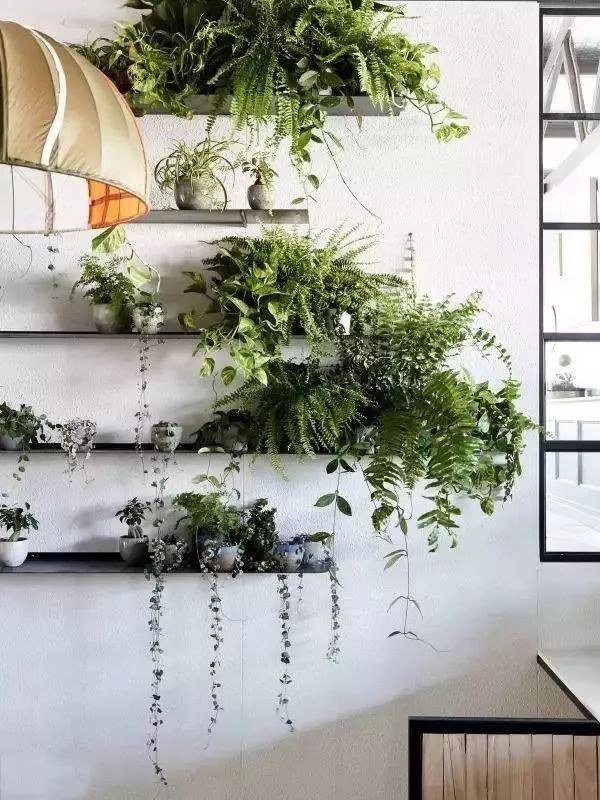
4. Fertilization of indoor plant conservation
If potted plants do not fertilize for a long time or do not fertilize enough, it will cause the phenomenon of leaf yellow; too much fertilization will burn the root system and make it unable to absorb water, which will also make the leaf yellow wither. Usually, the indoor potted plants choose to apply thin fertilizer once at the end of spring, and apply thin fertilizer once every other week in summer and autumn. Do not apply thick fertilizer more. If the fertilizer is too much, it can be diluted by watering too much and some fertilizer in the soil can be washed away. Lack of fertilizer will lead to basin soil hardening, plant leaves yellow, branches slender yellow tender, at this time should be fertilized immediately, can take effect within a week.
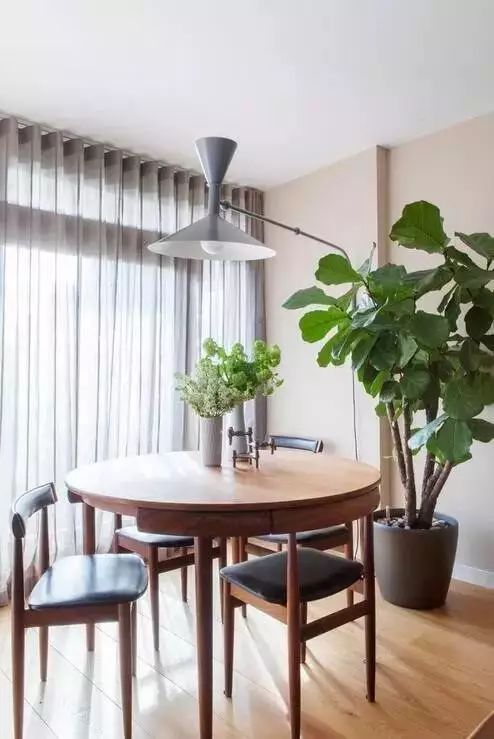
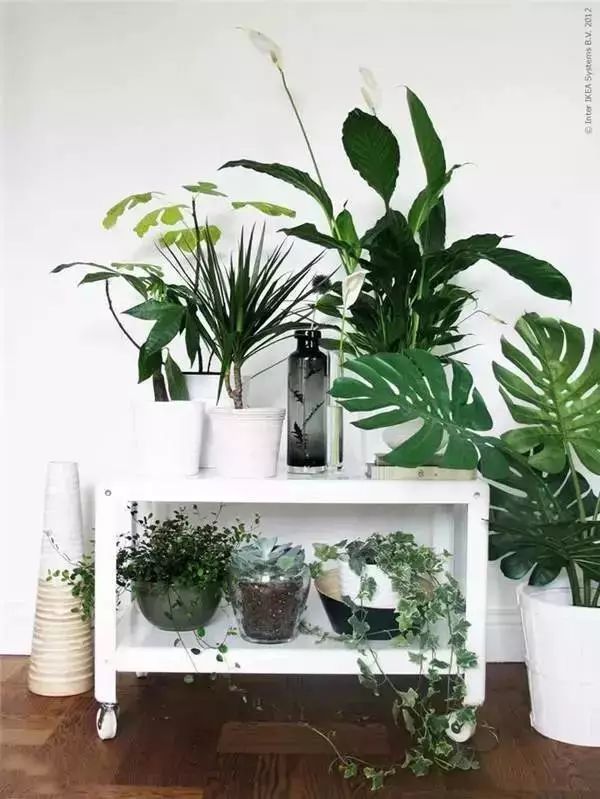
5. Plant diseases and insect pests of indoor plant conservation
The common diseases and insect pests mainly include aphids, red spiders and leaf spot diseases caused by virus infection such as fungi. Its harm lies in that it is easy to make the leaves of potted plants partial necrosis or wither, even the whole plant withered. Therefore, spray medicine timely to prevent, keep indoor ventilation and ventilation, and pay attention to water, fertilizer maintenance and illumination management.
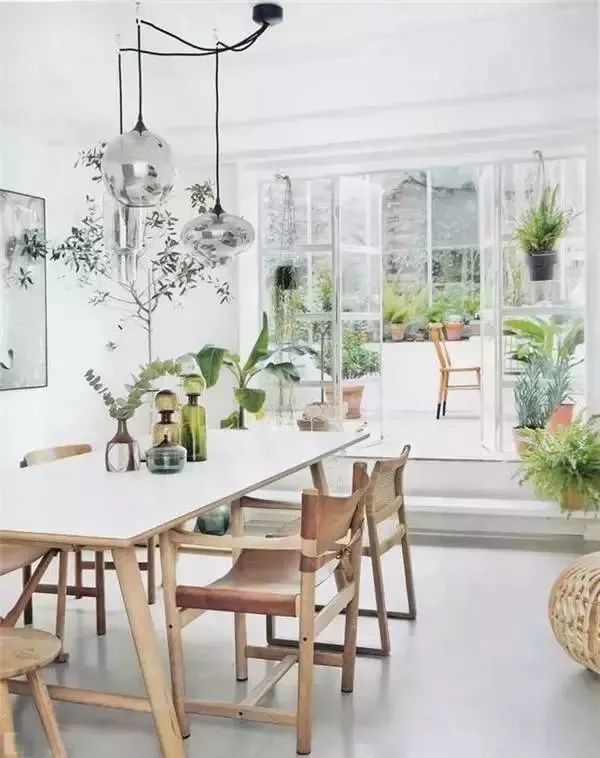
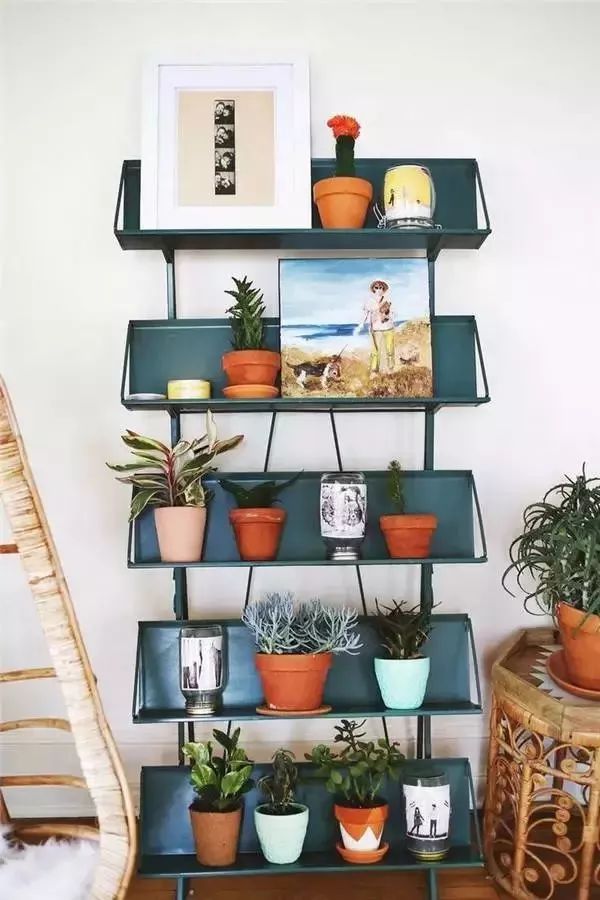
Is there much knowledge about the choice of plants?
How to put and maintain not only affects the beauty
It is also closely related to the health of family members
So
After reading this article, have you learned it?


